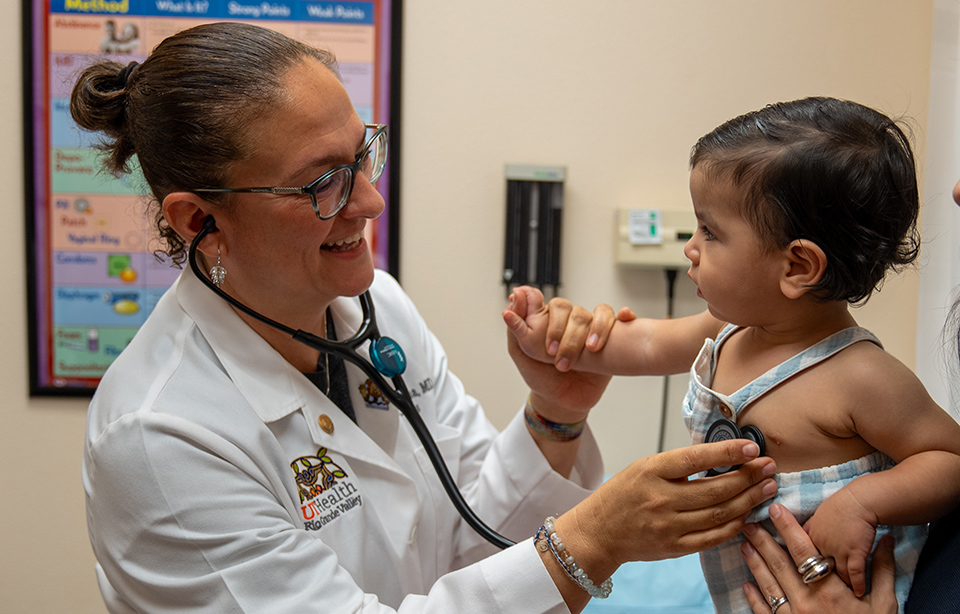- September 6, 2024
UT Health RGV pediatrician offers health tips for back-to-school season

Keeping children healthy
By Heriberto Perez–Zuñiga
As students across the Rio Grande Valley return to classrooms, parents often face the same question: How do I keep my child healthy and ensure they don’t miss school?
Dr. Cristel Escalona, a board-certified pediatrician at UT Health RGV and associate professor of pediatrics at the UTRGV School of Medicine, said being proactive about a child’s health during the school year is essential.
“Maintaining your child’s well-being is key to their success in school,” Escalona said. “Parents should know when to seek medical advice and when it’s safe for their child to return to school after an illness.”
WHEN TO KEEP YOUR CHILD HOME
One of the most challenging decisions for parents is determining when their child is too sick for school. Escalona said parents should follow a simple rule of thumb: “If your child has a fever, they should stay home.”
“A child should be fever-free for 24 hours without medication before returning to school,” she said. “A fever is a clear sign that the body is fighting an infection and sending them to school too early can put other children at risk, as well as hurt your child’s recovery.”
For symptoms like a runny nose, mild cough, or headache, Escalona said, it generally is safe to send your child to school if symptoms are not severe such as trouble breathing, low activity, or decreased appetite.
“However, vomiting and diarrhea are different matters,” she said. “Children should stay home until these symptoms resolve, as they can lead to dehydration and spread quickly in a school environment. Frequent handwashing and proper hygiene are critical to prevent the spread of illness to others.”
While COVID-19 remains a concern, the guidelines have shifted. The U.S. Centers for Disease Control and Prevention (CDC) now recommends treating COVID-19 similarly to other respiratory illnesses like the flu or RSV.
“The same precautions apply if your child tests positive for COVID-19,” Escalona said. “They should isolate at home, and even after returning to school, consider having them wear a mask for a few days to prevent further spread, if age appropriate.”
PREVENTIVE CARE
Beyond knowing when to keep a child at home, Escalona also encourages parents to focus on preventive care.
“Annual checkups, vision and hearing screenings, and staying on schedule with vaccinations are critical,” she said. “One of the biggest misconceptions among parents is that they only need to take their child to the doctor when they are sick. Pediatricians act as advocates for your child, and these routine steps help identify potential issues early, ensuring that children remain happy, healthy, and prepared to learn.”
Escalona said good nutrition and adequate sleep are essential for a child’s health. A balanced diet with plenty of fruits, vegetables, whole grains, and 10-12 hours of sleep each night can help strengthen a child’s immune system and enhance their concentration in class.
“Healthy children are more likely to succeed academically,” Escalona said. “Parents can set them up for a successful school year by prioritizing their well-being.”
For more information on back-to-school health tips, visit the American Academy of Pediatrics (AAP) and UTHealthRGV.org for routine and annual checkups.

